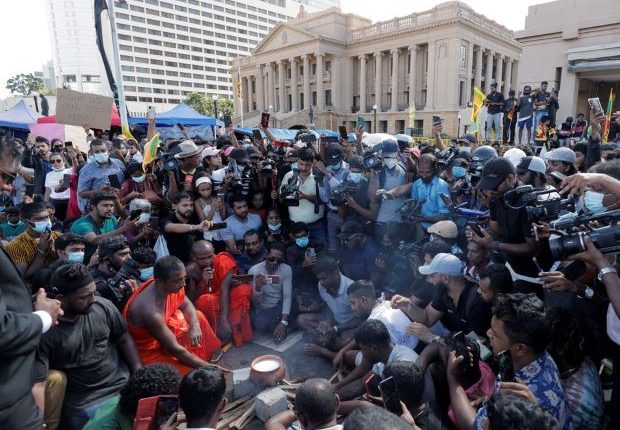Sri Lanka meltdown
The economic and political crisis in Sri Lanka has deepened. The country’s central bank has said that foreign debt repayment is “impossible”, while market observers assert that default is “a certainty”. Coupled with the economic meltdown are popular calls for the government of President Gotabaya Rajapaksa to step down, with protesters camping out in Colombo.
The disaster had been unfolding over the past several weeks, amid crippling food and fuel shortages and doctors warning that the country was running out of essential medicines. Sri Lanka owes just over $35bn to foreign creditors, while its financial woes have been compounded by a downturn in tourism traffic caused by Covid-restrictions; the island is heavily dependent on foreign tourists for its economic stability.
The country’s financial predicament has dovetailed with a major political crisis; the whole cabinet recently resigned leaving the president and Prime Minister Mahinda Rajapaksa — both brothers — left to face the wrath of the public. Many critics feel the economic crisis has been exacerbated by mismanagement at the top, as numerous members of the Rajapaksa family held key posts in government. Though the prime minister has offered talks to resolve the crisis, the opposition is aiming for a vote of no-confidence.
The Sri Lankan government is due soon to start bailout talks with the IMF. It is hoped that the multilateral lender, as well as the country’s foreign creditors, offers a plan that prioritizes domestic economic stability. For now, helping provide affordable food, fuel and medicines to the people must be given precedence, while a longer-term plan to rescue the country from its debt trap needs to be hammered out.
The Sri Lankan crisis should also serve as a warning to other developing states that economic mismanagement and political nepotism can give birth to major instability that can rattle the foundations of society. Fiscal probity, together with transparent governance, appears to be the only way of avoiding such calamities, while austerity and accountability need to begin at the top.
-DAWN


